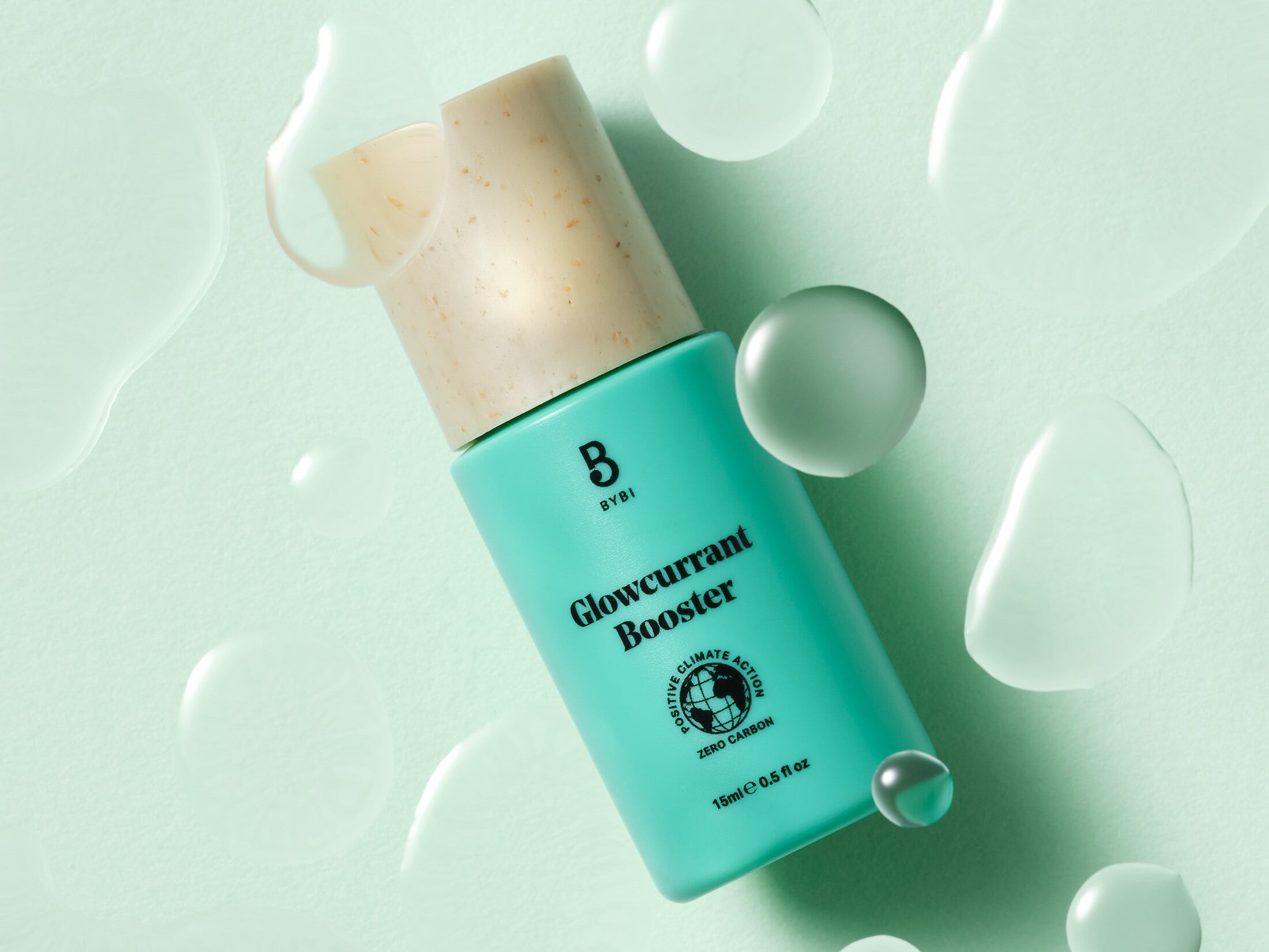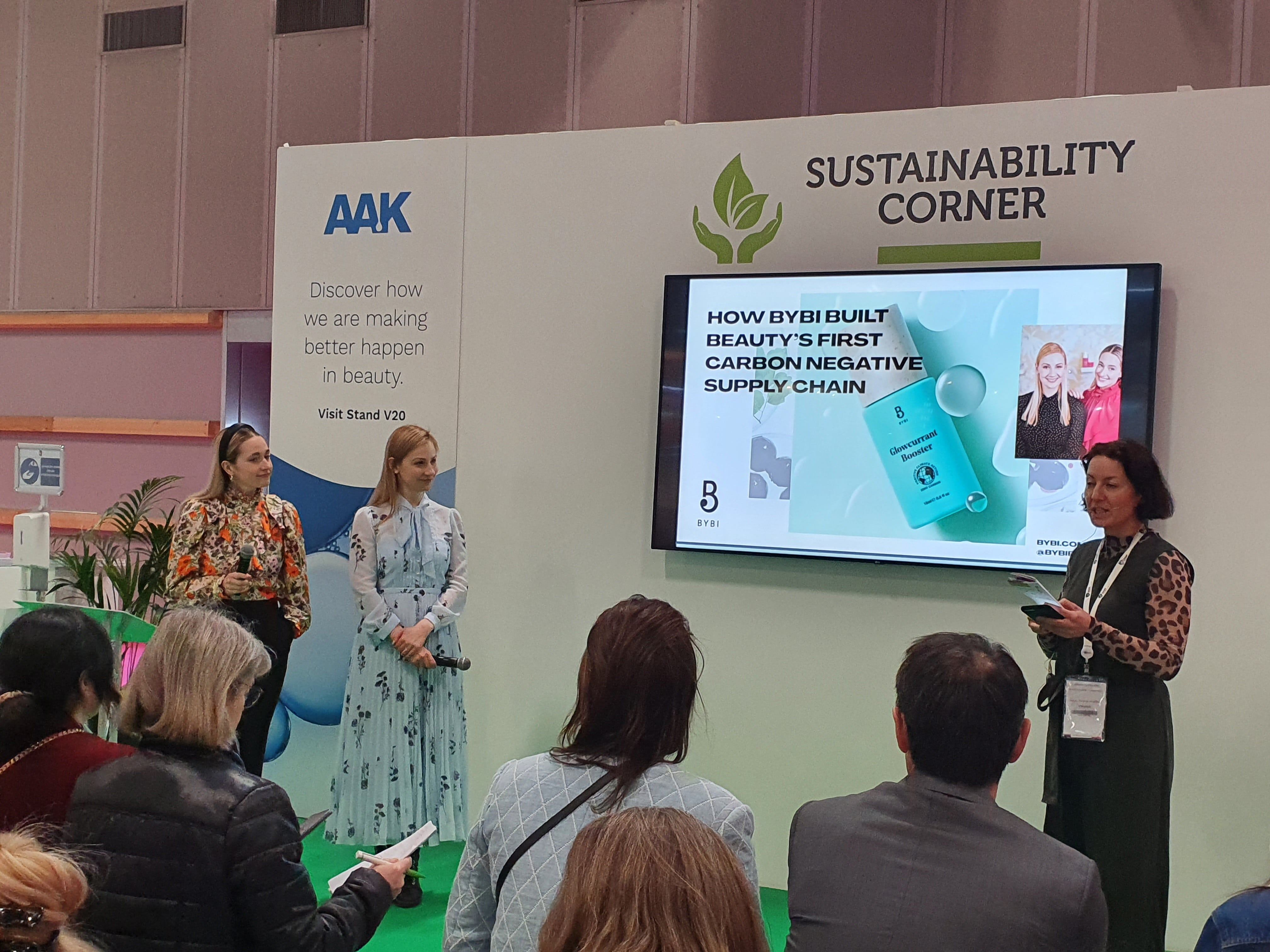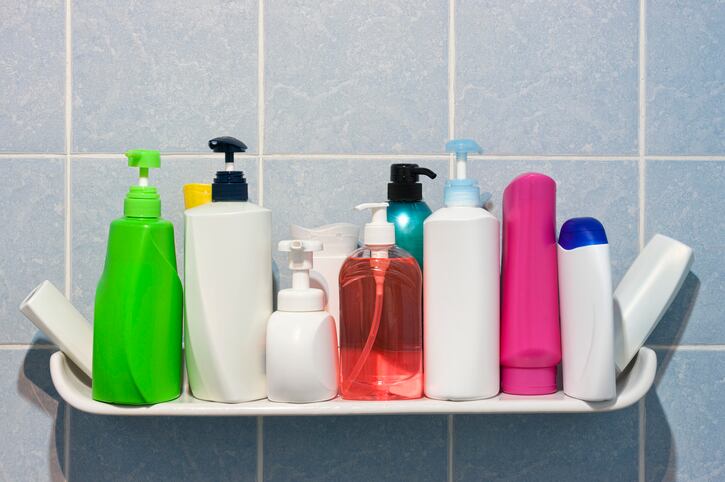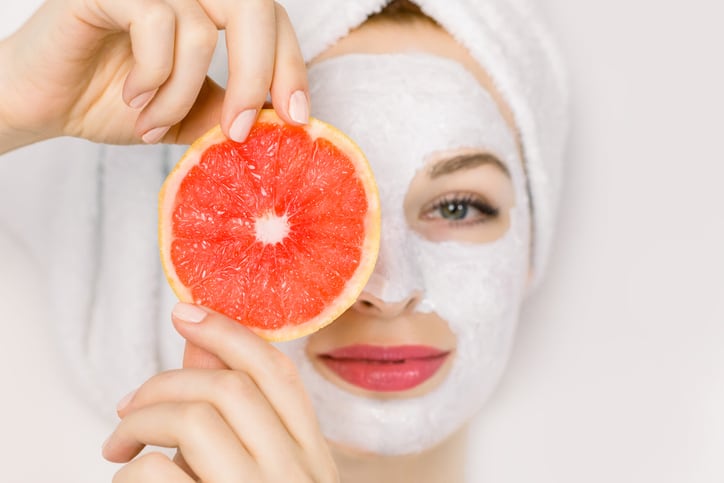Founded in 2017, BYBI offered a range of natural and vegan skin care products, including facial oils, night creams, serums, lip balms, eye creams, face mists, hand sprays and makeup removers. Stocked globally in Sephora stores, in Target across the US and in Boots in the UK, the brand was also available across various e-commerce platforms including Lookfantastic, Feelunique and its own-brand website.
Back in 2019, BYBI founders Elsie Rutterford and Dominika Minarovic told CosmeticsDesign-Europe the brand was on a mission to mainstream sustainable beauty. Today, the brand had shifted even further with plants to make its entire business carbon negative by 2025, without any external offsetting or credit purchasing.
“By 2025, that is quite a lot to do (…) We take on these things, and they’re quite a challenge,” Rutterford told attendees at in-Cosmetics Global in Paris this week, at a presentation in the tradeshow’s Sustainability Corner.
“…Our mission today is about carbon. We’re here to produce the lowest carbon skin care possible,” she said.
Carbon sequestration, upcycled ingredients and smart supply networks
In February this year, BYBI launched its first carbon negative ‘glowcurrant booster’ facial oil, made with just three ingredients – blackcurrant seed oil, camelina sativa seed oil and salix alba bark extract. The final product was negative in carbon emissions, with each 15ml facial oil netting out at -13g CO2e, according to two separate and independent audits.

Minarovic said the launch was the result of around two years of extensive work looking carefully at a “number of different components” throughout the supply chain, including sourcing, ingredients and processing.
The blackcurrant seed oil, for example, was upcycled from UK food industry waste and its cap and dropper packaging material completely compostable and made from agricultural waste. The rest of the product packaging was made using sugarcane materials, she said. “We really like sugarcane because of its ability to sequester carbon (…) and upcycled ingredients were a key component of having zero emissions to the formula. The product is pretty much entirely made from upcycled materials; we’re using waste materials to create this product, which is great.”
Rutterford said the company now planned to rollout this carbon negative model on all future NPD, as well as re-work all existing product formulas, packaging and supply chains across its 24 SKUs.
“That retrospective work is going to be harder than starting from scratch. We’re starting from a good base, but there’s going to be a lot of work there,” she said.
Cost absorption – ‘we just took a hit on margin’
Asked by an attendee how BYBI had factored in cost to the carbon negative project, both founders admitted the process had cost the brand money.
“This booster is £12 [€14.39], so it’s the same price as the rest of the boosters. I’m not going to lie to you – we just took a hit on margin,” Minarovic said.
Sourcing locally, processing with green technology and conducting extensive life-cycle analysis and audits had all proven “super expensive”, she said, but the project was also “future-proofing” BYBI’s business.
“In the short-term future, all businesses are going to be required to be looking at LCAs [lifecycle analyses], and doing this while we’re a smaller brand, we do believe we’re saving that in the future.”
So, given the new product was priced the same and aligned with the look and feel of the rest of the booster line – the brand’s leading range – how was BYBI planning to communicate with consumers on the product’s carbon negative status? In short, it wasn’t particularly, Rutterford told CosmeticsDesign-Europe. “The headline is that this is a great product that is going to help give you bright, glowing, healthy, moisturised skin. We ran loads of user trials to make sure we had robust claims and that’s how we’re marketing it: as a skin care product first and foremost.
‘Pro-planet’ messaging is layered according to consumers
“We then layer in our ‘pro-planet’ messaging based on who we’re talking to and based on how deep they want to go with messaging. On certain social channels, we’ll go much deeper – to the point of all this information being available if a customer asks for it,” she said.
For most beauty consumers, however, carbon neutrality or negativity was a “complex topic” with terms not widely recognised, she said. “Consumers don’t recognise carbon neutral, net zero or carbon negative but they understand that it means ‘generally doing better’, and they’re happy to buy into that. As consumers become more sophisticated, they will start to interrogate these terms more deeply, but as it stands, our marketing message is that this is a great product that is going to give you great skin.”

Minarovic said BYBI was “really mindful” with all consumer communication and brand positioning around the carbon topic, particularly given it only currently offered one product that was carbon negative at this stage. But she said it was also impossible to claim total sustainability as a consumer good brand. “We don’t pretend buying BYBI is the best thing you can do for the planet; buying nothing would be the best thing to do for the planet (…) We’re very focused on sustainability, but obviously we’re still a brand.”
Rutterford agreed: “We’re not here to say we have solved the climate crisis and we are absolutely not here to say if you buy BYBI glowcurrant booster you’re having an amazingly positive impact on the climate crisis. That is not our messaging. What we’re here to say is: we’ve worked out how to do things a little differently, and that’s a great way to inspire others and think about how they’re doing things.”
Inspiring other brands and wider beauty industry
Looking ahead, and as BYBI worked towards total carbon negative status, the founders said they hoped their work inspired other brands and suppliers in skin care.
“Our overall message is that, just digging a little deeper into the supply chain, understanding that as a brand rather than handing that off to our manufacturer, has allowed us to make changes that have a really, really positive impact. And if we can encourage others to do the same, that’s great. We’re a small voice, a small brand, but hopefully a big enough collective voice will mean the big guys start to listen,” Rutterford said.
For beauty suppliers, Minarovic said investing in lifecycle analysis was key to supplying into carbon neutral or negative beauty brands of the future, but it would also be critical to re-think distribution. “There’s currently no non-fossil fuel derived way of shipping products around the world; even ships have terrible consequences. Hydrogen-powered vehicles and electric vehicles are there but they’re still not prevalent enough for it to be the norm. So, understanding the mileage, distribution and being smart about how you transport goods is beneficial to us.” Suppliers could, for example, consolidate distribution runs and deliver materials to multiple brands on the same day, she said, reducing overall emissions in that part of the supply chain, as well as switch to green energy – a “no brainer” in today’s world.
This was all critically important as sustainability, circularity and carbon footprint had become “a movement not a moment” in beauty today, said Rutterford.




